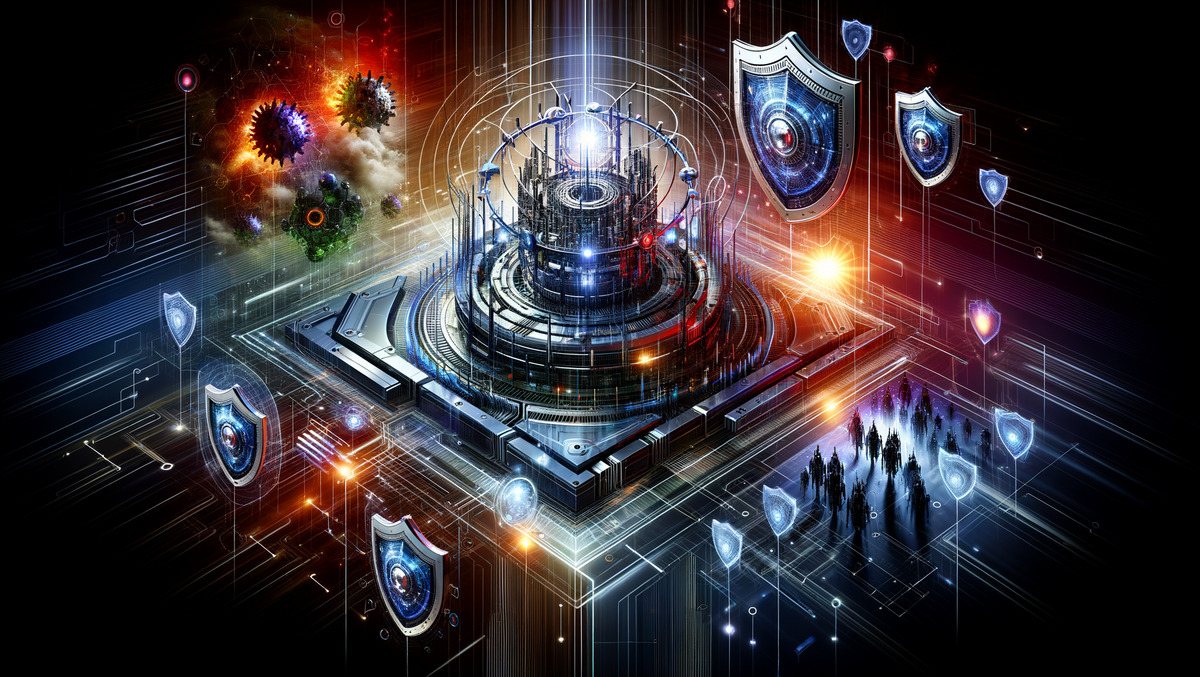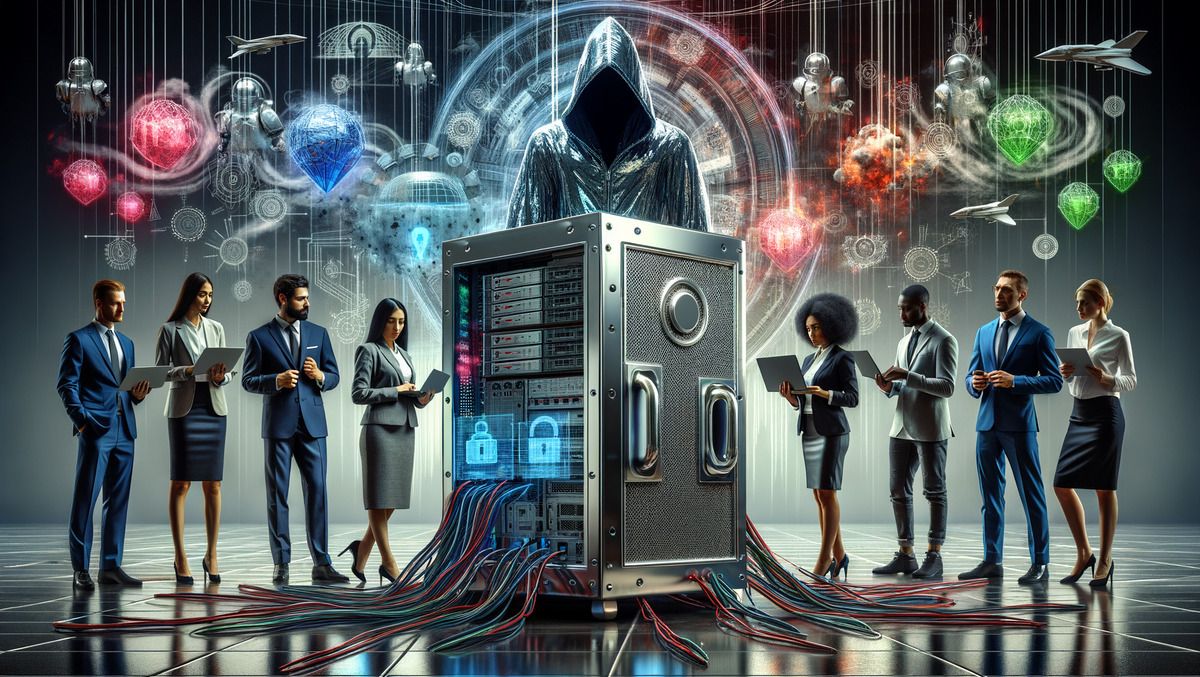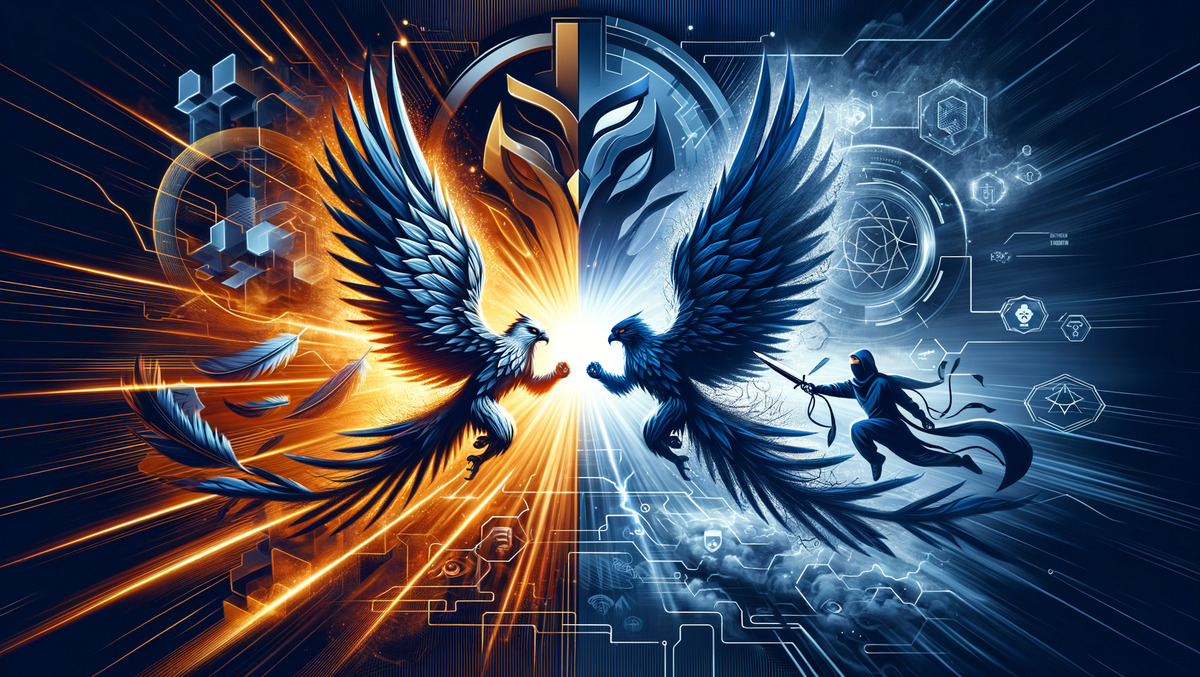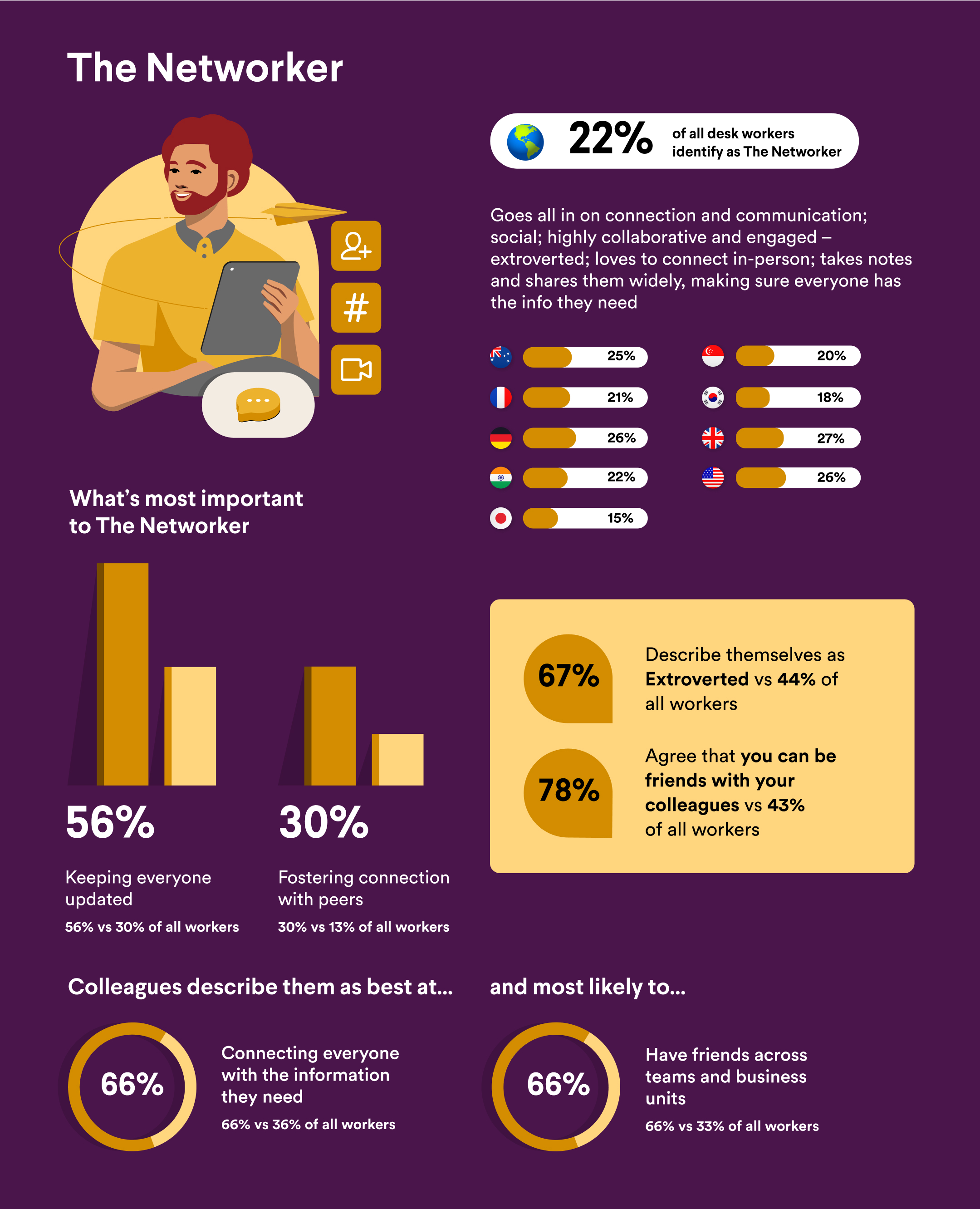
Mounting an effective response to a crisis, such as a data breach, is a significant challenge, but having the people in your team that are best equipped to drive that response can have a significant and positive impact.
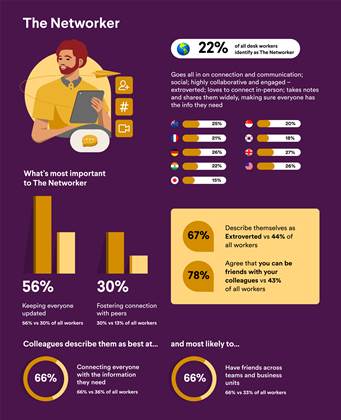
Such an incident is a test for employees’ ability to connect with the right people, at the right times, in the right way – and that ability, a recent piece of research has found, is concentrated in individuals with a workplace persona type known as The Networker.
The research – a survey of 15,492 desk workers worldwide by productivity platform Slack and market research firm YouGov – found Networkers are primarily driven by relationships with colleagues far more than other workplace personas. They have a strong preference for being co-located with their teammates over working remotely, and are the most likely of five examined workplace personas to prefer face-to-face communication over other types of collaboration.
They also comprise around 25% of the average Australian workforce, which makes them invaluable to maintaining coherence among diverse project teams that, the survey found, also include key workplace personas The Detective, The Problem Solver, The Expressionist, and The Road Warrior.
Networkers offer the kind of relationship building that is critical to keeping teams working together through times of crisis – when knowing who to connect with and what to communicate becomes essential to successfully dealing with the crisis.
“The Networker knows everyone and is successful through their connectivity,” explains Slack APAC technology evangelist Derek Laney. “If they don’t know the answers, they know the right person who knows the answer – and sometimes that’s more valuable.”
“You need these people in your team,” he continues. “You don’t need everyone to be like that – but to have one of them in your team is gold because they’re going to amplify the work of others.”
The master connecter
Networkers recently proved critical at the University of Wollongong (UoW), which raced to deal with a suspected data breach and called upon the preparations made years ago in its Data Breach Response Plan (DBRP). The DBRP included both driving the incident response and maintaining open channels of communications with all stakeholders.
With the severity and implications of the breach still uncertain, the DBRP directed rapid engagement with a variety of stakeholders – including the security team leader, privacy officer, legal support, IT and forensic support, HR, media and communications leaders, and external specialist IT consultants who were already on the case early on.
Keeping so many stakeholders in the loop is a core personality trait of Networkers – extroverts who are predisposed to keep team members updated, build connections with peers, and have friends across teams and business units. The traits of The Networker are particularly common in CEOs, who Laney said “understand where value lies and are able to leverage it.”
That capability is crucial for executives to project, using leadership skills to solve everyday business problems. When technology is involved, networking becomes even more important because CEOs must be able to reach out across the business to find subject matter experts within any function of the company.
Many CEOs intentionally avoid putting too much on their plates, preferring to keep those experts close to hand so they’re ready to go when needed.
Strategic approaches to cybersecurity illustrate this trend in practice: a recent Accenture CEO survey, for example, found that just one-third of respondents agree that they have deep knowledge of the cyber threat landscape – and that 91% believe cybersecurity is a technical function that should be the responsibility of the CIO or CISO.
When an incident happens, then, the CEO’s effectiveness will hinge on how quickly they can kick off a multi-disciplinary response that engages cyber specialists, IT experts, business process gurus, and other types of employees – no matter whether they are onsite or working remotely.
By providing a common baseline for communications amongst all kinds of employees, a productivity platform like Slack – enabling real-time communication and collaboration – are enablers of extroverted Networkers who are prone to being social, collaborative, and engaged.
Networkers love to take notes, for example, and share them widely as they go “all in” on connection and communication.
Whether responding to a cyber incident or managing day-to-day collaboration between far-flung team members of all five workplace persona types, tapping The Networker’s social tendencies is crucial to maintaining a proactive and effective team culture.
That means using technology to engage with the other persona types and, managing team dynamics while keeping an eye on longer-term business objectives and the people who are monitoring team performance.
Ultimately, all personality types will thrive based on different combinations of business processesand technological tools – such as Slack collaboration features like huddles, canvas, clips and Slack Connect complementing information services like Slack Atlas, and business process tools like Workflow Builder, alongside over 2,600 app integrations.
“As people, managers and leaders, we do need automation, and we need to ratchet that up,” Laney said. “But at the same time, we know that teams work better when a workplace has better relationships, has a great culture, is fun to be at and gives us a sense of belonging.”
To learn more about how Slack supports a collaborative business culture, click here.


